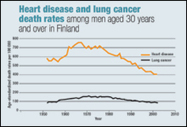 Your new post is loading...
 Your new post is loading...

|
Scooped by
Giuseppe Fattori
October 19, 8:39 AM
|

|
Scooped by
Giuseppe Fattori
October 19, 3:29 PM
|
Per una comunicazione pubblica (istituzionale) della sostenibilità: definizione e tipologia - Gea Ducci
Nella società connessa, in continua evoluzione, gli attori che sono presenti negli spazi in cui si dibattono questioni di interesse generale (come le tematiche della sostenibilità), e i luoghi in cui i discorsi pubblici vengono generati e condivisi, sono sempre più numerosi... Scarica l'articolo

|
Scooped by
Giuseppe Fattori
October 19, 6:56 AM
|
Si è conclusa a prima sessione della discussione di tesi dell'edizione del Master universitario di II livello in One Health, promosso dall’Università di Modena e Reggio Emilia

|
Scooped by
Giuseppe Fattori
October 19, 2:16 PM
|
Quel che conta è la posizione che assumiamo nel contrasto, spiega Damiano Tommasi. E dovremmo viverlo come opportunità per una ripartenza.

|
Scooped by
Giuseppe Fattori
October 19, 9:10 AM
|
"Large language models are transforming medicine—but the technology comes with side effects."

|
Scooped by
Giuseppe Fattori
October 19, 8:50 AM
|
... He also outlines the devastating impact that deprivation has had on life expectancy and mortality in the country since 2010.

|
Scooped by
Giuseppe Fattori
October 19, 6:34 AM
|
Una sana prevenzione riduce il rischio di malattia, crea una popolazione più sana e longeva e alleggerisce il carico sul Servizio Sanitario nazionale. Su cosa NON è, invece, ho scritto un libro

|
Scooped by
Giuseppe Fattori
October 19, 9:56 AM
|
Selezione aggiornata di siti web, APP e piattaforme che restituiscono i dati di mappature su opportunità, progetti, iniziative e materiali.

|
Scooped by
Giuseppe Fattori
October 19, 10:19 AM
|
Numerous societal issues, from climate change to pandemics, require public engagement with scientific research. Such engagement reveals challenges that can arise when experts Experts communicate with laypeople.
Studieremo il marketing sociale applicato a tematiche di pubblica utilità, con particolare riferimento all'ambiente, allo sviluppo sostenibile e alla “One Health”.

|
Scooped by
Giuseppe Fattori
September 6, 9:34 AM
|
The use of social media for disseminating health information to adolescents and young adults has garnered significant attention, showing promising results. Younger audiences increasingly prefer social media and mobile aggregators for their informative needs, considering these platforms reliable sources, particularly for sexual health and general health topics

|
Scooped by
Giuseppe Fattori
September 6, 10:05 AM
|
I primi mille giorni di vita – dal concepimento ai due anni – rappresentano una fase cruciale per la salute e lo sviluppo del bambino. Ma sono anche un’occasione unica per adottare comportamenti ecosostenibili ...
|

|
Scooped by
Giuseppe Fattori
October 19, 6:34 AM
|
Social marketing for health and the environment in the digital society. Giuseppe Fattori, Gea Ducci - University of Urbino Carlo Bo
On Wednesday, 29 October, during the Strategic Public Communication course at the University of Urbino Carlo Bo, Professor Giuseppe Fattori will give a lecture on ‘Social marketing for health and the environment in the digital society’.
The lecture will be preceded by an introduction by Professor Gea Ducci, who teaches the course.

|
Scooped by
Giuseppe Fattori
October 19, 10:03 AM
|
Emerging and re-emerging infectious diseases in different soci-ecological settings create unprecedented challenges for global public health and socio-economic development. The One Health concept is based on a systemic, transdisciplinary approach and hence captures the interactions between humans and animals, in a given socio-ecological setting.

|
Scooped by
Giuseppe Fattori
October 19, 9:26 AM
|
The authors develop a three-stage framework for strategic marketing planning, incorporating multiple artificial intelligence (AI) benefits: mechanical AI for automating repetitive marketing functions and activities, thinking AI for processing data to arrive at decisions, and feeling AI for analyzing interactions and human emotions.

|
Scooped by
Giuseppe Fattori
October 19, 9:36 AM
|
Developing mass meda campaigns to address rising youth vaping rates in Australia is timely and resource-intensive. Generative AI offers scalable content production, but little is known about youth perceptions of AI-generated multimedia materials or how their feedback can inform co-design processes.

|
Scooped by
Giuseppe Fattori
October 19, 10:07 AM
|
Come si può istituire la reciprocità tra la formazione degli individui e il bene comune? A partire dall’idea di responsabilità e di eccedenza che caratterizza l’insegnamento dei valori rispetto a quello delle nozioni, la lezione mostrerà che una città può essere felice solo se ci si fa reciprocamente carico della sua valorizzazione.

|
Scooped by
Giuseppe Fattori
October 19, 6:51 AM
|
Il racconto di Stefano Massini.

|
Scooped by
Giuseppe Fattori
October 19, 9:46 AM
|
L’argomento probabilmente più discusso riguardo alle ricadute sociali dell’intelligenza artificiale (IA) è la sua potenziale minacciosità per il mondo umano. ...Umilmente mi viene da osservare che è difficile trovare due psicologi dell’intelligenza umana che siano d’accordo sulla natura, la definizione e la misurazione dell’intelligenza generale. Stessa situazione per l’IAG.

|
Scooped by
Giuseppe Fattori
October 19, 2:19 PM
|

|
Scooped by
Giuseppe Fattori
October 19, 6:50 AM
|
Main theme: Investing for sustainable health and well-being The 18th EPH Conference highlights that improving population health and well-being is an investment, not an expense. This investment benefits society and fosters a sustainable economy.

|
Scooped by
Giuseppe Fattori
September 6, 9:33 AM
|
Guarda l'intervista su YouTube, 100 secondi di Marketing Sociale con Jeff French "President of the International Social Marketing Association" intervistato da Giuseppe Fattori, Ettore Paoletti e Chiara Rossi

|
Scooped by
Giuseppe Fattori
September 6, 9:33 AM
|
Janelle Marietta, University of Lethbridge, "Defining ‘community’ and ‘participation’ in community-based participatory research"

|
Scooped by
Giuseppe Fattori
September 6, 9:33 AM
|
This book empowers readers to communicate effectively about critical environmental issues, enhancing public awareness of the Water-Energy-Food Nexus.
|






 Your new post is loading...
Your new post is loading...





























